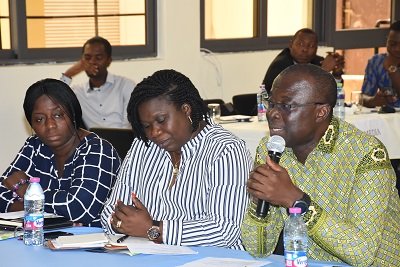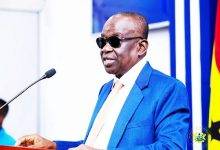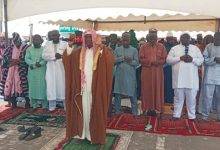
Resettling of communities to be affected by the construction of the Pwalugu Multi-Purpose Power Dam project in the Upper East Region will be done in conformity with the cultural norms and traditions of the people, the Volta River Authority (VRA) has assured.
Mr Emmanuel Antwi-Darkwa, Chief Executive, VRA, said this was to ensure an overwhelming acceptance of the project by the beneficiary communities and alleviate possible resettlement-related challenges.
“The relocation procedure with this project will be different. We want to have a resettlement project that is fit for purpose and will be embraced by the people.
We want to execute it so well in order not to have the residual issues that confronts the Akosombo, Kpong and Bui resettlement projects within the past years. We will treat the project with the extreme sensitivity and in conformity with the cultural norms and traditions of the affected communities,” he added.
He was speaking at a one-day Pwalugu Multi-Purpose Power Dam project stakeholders’ engagement forum in Accra yesterday.
It brought together representatives of the VRA, Water Resources Commission, Energy Commission, Minerals Commission, Volta Basin Authority, Environmental Protection Agency (EPA) and the Ghana Irrigation Development Authority to discuss the various implementation phases of the project.
Other ministries including Local Government and Rural Development, Finance, Water and Sanitation, Food and Agriculture among others were also represented for their inputs to ensure the project was effectively executed.
Sited in the Talensi District of the Upper East Region, the dam project was designed to generate extra 60 megawatts of power to supply the Northern Electricity Company (NEDCO).
The building of the hydropower component, which is the first phase of the project, Mr Antwi-Darkwa said, was estimated to cost US$300 million following feasibility studies by the VRA.
Construction work on the dam, funded with a loan from China, would commence by the end of this year and would be completed in about three and half years, he noted.
According to him, the hydro power would increase Ghana’s renewable energy capacity and enhance the country’s climate change commitment under the United Nations (UN) Convention on Climate Change.
Project Engineer and Manager of Business Development, VRA, Kwaku Wiafe, said, aside the huge number of jobs to be created, the project would also have a solar component to balance hydro energy with solar power to ensure reliability of power supply.
The multi-purpose nature of the dam, he said, would also deal with perennial flooding in the Northern, North East and Savannah regions, which results in the destruction of lives and property during the rainy seasons.
Additionally, the project would also include the development of a 20,000-hectare irrigation scheme which would promote agricultural production and attract large-scale commercial farms and boost economic activity in the Upper East and North East regions, Mr Wiafe stated.
BY CLAUDE NYARKO ADAMS







